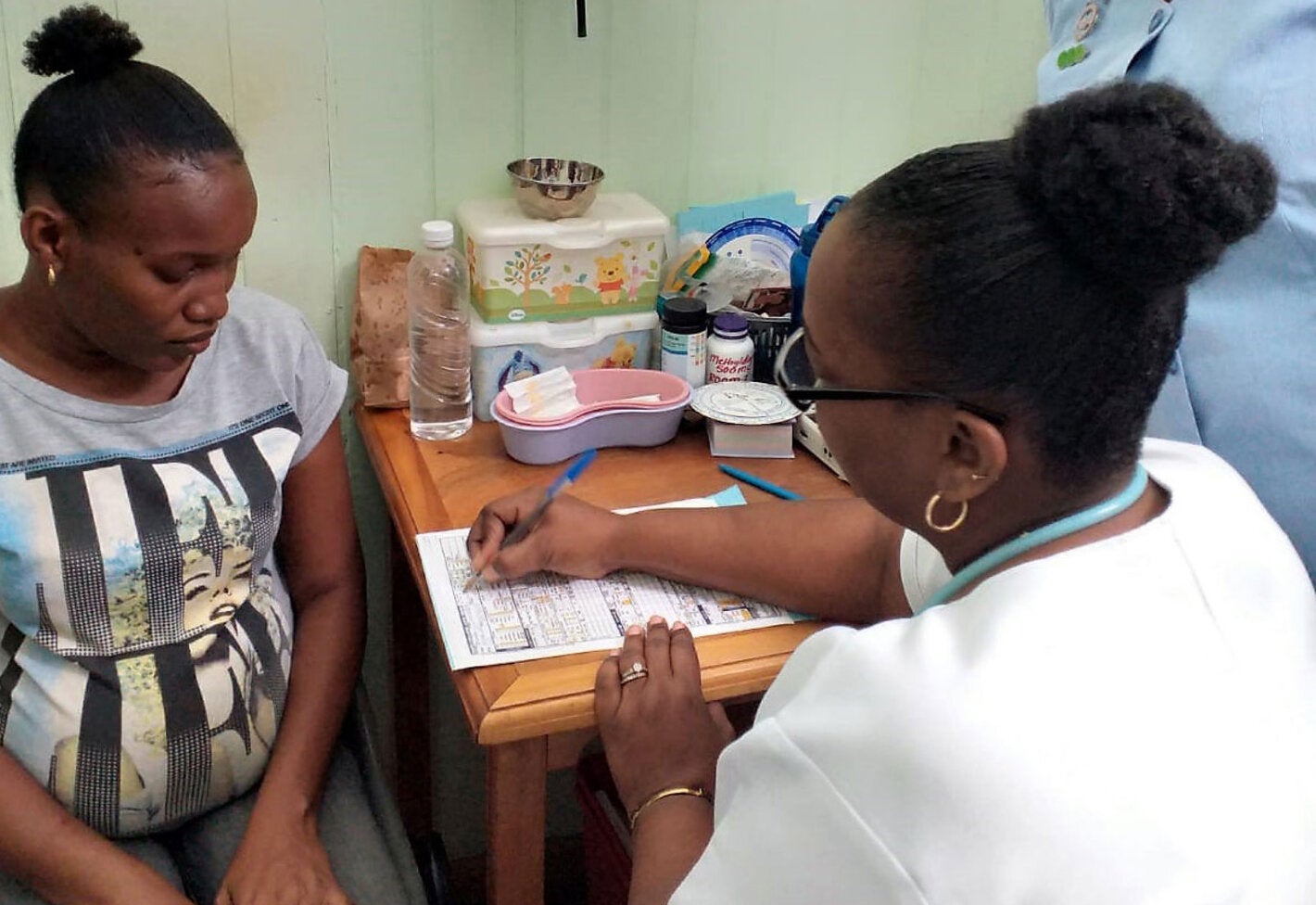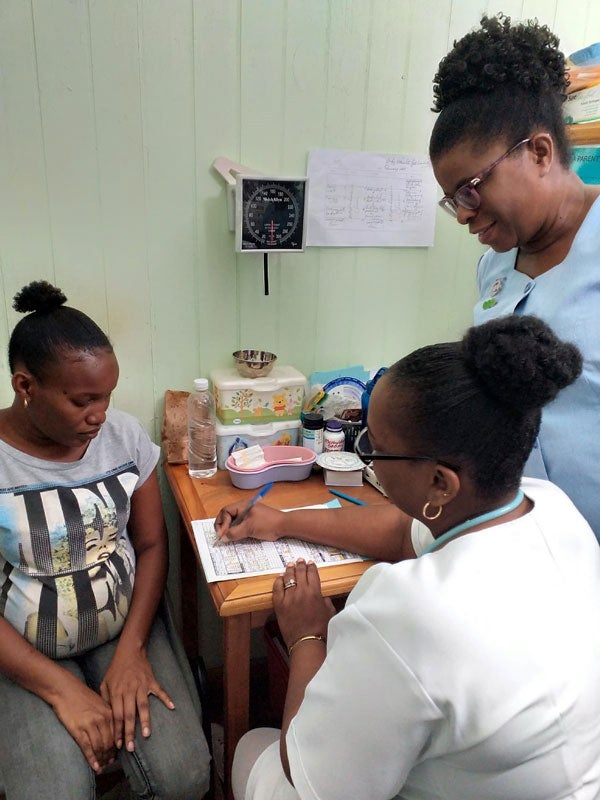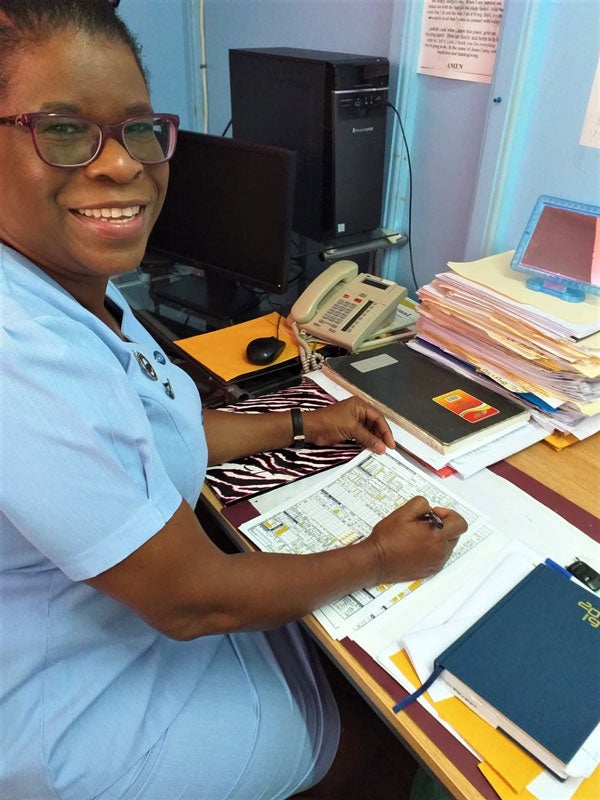
Roseau, Dominica, 1 May 2019 (PAHO)- Nearly three decades into her career as a midwife, Odette Thieophile works at the Roseau Health Centre in Dominica, where she welcomes around 220 babies a year. Strongly committed to her profession and to women’s health, she stresses that safe deliveries and healthy mothers and babies are what matters most.
Odette, along with 39 other colleagues from Dominica, participated this year in training workshops on the use of the Perinatal Information System (SIP) and SIP Plus forms, a system created by the Latin American Perinatology Center (CLAP/SRM) of the Pan American Health Organization (PAHO), which consolidates health information on pregnant women and newborns.
Using SIP means caring for mothers and children at a critical time in life. And that's what Dominica is doing now.
“SIP allows for the automatic collection and consolidation of data to analyze the health situation and make informed decisions about strategies and policies that can save newborns’ lives,” explained Dr. Jose Luis Diaz Rossello of CLAP/PAHO, one of the training instructors in Dominica.


A child is at the greatest risk of death in the first few days of life, known as the neonatal period. In 2017, some 2.5 million children died in their first month of life worldwide, accounting for 47 percent of deaths among children under 5 years old. In Dominica, 15 out of every 1,000 live births do not survive 28 days. “Using SIP means caring for mothers and children at a critical time in life. And that's what Dominica is doing now,” Díaz Rossello said.
For Odette, the training she received will enable her to improve the health of mothers and newborns through “monitoring and evaluation, follow-up of quality of care, and diagnostic procedures for services.”
SIP is low-cost and easy to use and is made up of several components including the perinatal medical record (HCP) and the perinatal card (CP). Ten countries in the Americas are currently using the Plus version of the SIP, which allows health administrators to learn more about the causes of newborn deaths and follow up to improve neonatal health.
Odette finds many advantages to the system: “It provides immediate information, allows work to be audited, helps identify deficiencies and things that need to be corrected, directs planning and scheduling, and helps ensure quality of care,” she says.
After the training that was held last February, Dominica’s Ministry of Health authorities decided in April to begin using SIP Plus as the medical record for the prenatal, delivery,
intrapartum, and neonatal periods. On the island, Odette says, “all health providers will be involved in data collection and analysis.” It is a step forward that can save newborns’ lives.



